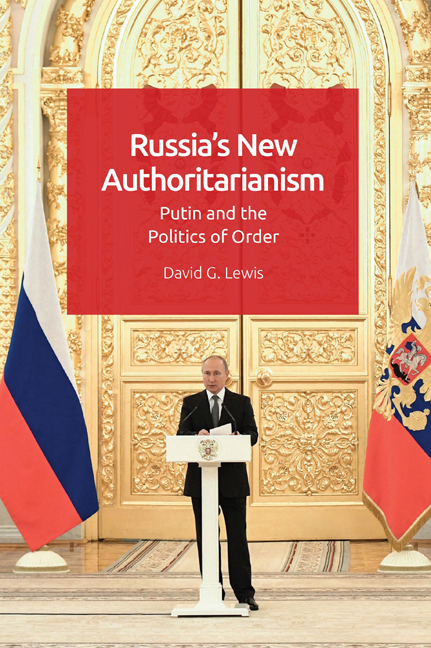Book contents
- Frontmatter
- Contents
- Preface
- Acknowledgements
- Note on Transliteration and Translation
- One Authoritarianism, Ideology and Order
- Two Carl Schmitt and Russian Conservatism
- Three Sovereignty and the Exception
- Four Democracy and the People
- Five Defining the Enemy
- Six Dualism, Exceptionality and the Rule of Law
- Seven The Crimean Exception
- Eight Großraum Thinking in Russian Foreign Policy
- Nine Apocalypse Delayed: Katechontic Thinking in Late Putinist Russia
- Conclusion
- Bibliography
- Index
Two - Carl Schmitt and Russian Conservatism
- Frontmatter
- Contents
- Preface
- Acknowledgements
- Note on Transliteration and Translation
- One Authoritarianism, Ideology and Order
- Two Carl Schmitt and Russian Conservatism
- Three Sovereignty and the Exception
- Four Democracy and the People
- Five Defining the Enemy
- Six Dualism, Exceptionality and the Rule of Law
- Seven The Crimean Exception
- Eight Großraum Thinking in Russian Foreign Policy
- Nine Apocalypse Delayed: Katechontic Thinking in Late Putinist Russia
- Conclusion
- Bibliography
- Index
Summary
We are undoubtedly conservatives, we just don't yet know what that means.
Vladislav Surkov (Remizov 2006)Any understanding of the dominant worldview among Russian decision-makers in the Putinist period requires an understanding of the evolution of Russian conservative thought since the 1990s. By the early 2000s, liberalism as an ideology was effectively moribund in Russia, clearly demonstrated by the complete collapse of liberal parties at the December 2003 parliamentary elections and the domination of the new parliament by a new conservative ruling party, Edinaya Rossiya (United Russia). Subsequently, all meaningful political debates in Russia took place within a ‘hegemonic discourse’ of conservative ideas and worldviews (Prozorov 2005; Blühm 2016). There were still groups and individuals who were termed ‘systemic liberals’ in the Russian establishment, but their liberalism was primarily that of corporate neo-liberalism, not of political democratisation or civil rights. Figures such as Alexei Kudrin or Anatoly Chubais retained a role primarily as the (often unsuccessful) advocates of Russian private business or the prioritisation of economic over geopolitical goals. Liberal ideas were still articulated, but, as Elena Chebankova argues, liberalism ‘functions merely as a discursive alternative, not as a meaningful option seriously considered by the majority of the population’ (Chebankova 2017: 3).
Russia has a long tradition of conservative thought, albeit one repressed in the Soviet period. The principles of nineteenth-century Russian conservatism, articulated by figures such as Sergei Uvarov, Mikhail Katkov and Konstantin Pobedonostsev, centred on opposition to any constitutional limitations on autocracy and the centrality of Orthodoxy to Russia's political and geopolitical identity (Pipes 2005). It reached its heyday as a reactionary force in the 1880s under Alexander III, yet it was ultimately a fragmented and failed movement, unable to forge a common political programme to respond to the challenge of rapid modernisation (Khristoforov 2009). A more ‘liberal’ conservative trend, led by Sergei Witte and Petr Stolypin, aimed to reconcile economic modernisation with political conservatism, but failed to forestall revolution. After 1917 Russian conservative thought developed in exile, including in Eurasianist circles in Prague in the 1920s, and through the work of the philosopher Ivan Ilyin. These thinkers were rediscovered in the post-Soviet period, but their influence on official thinking remained marginal until the 2000s.
- Type
- Chapter
- Information
- Russia's New AuthoritarianismPutin and the Politics of Order, pp. 24 - 48Publisher: Edinburgh University PressPrint publication year: 2020



